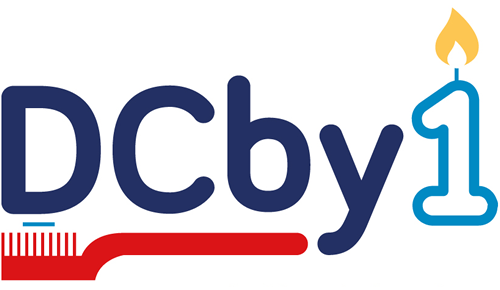Children’s teeth and the pandemic
The Dental Check by One campaign successfully increased the number of children aged under two seeing a dentist within a few years of its launch. It was very rewarding to see the uplift of about 2.5% in such a short time.
Conversely, it has been disappointing to witness the detrimental effect of the COVID-19 pandemic on children accessing a dentist. Figures released in October show the number of children aged 0-2 seeing a dentist was halved between June 2020 and June of this year.
This downturn was predictable given that there were no face to face dental appointments in primary care except emergencies from March to June 2020. Then, when lockdown ended, patients in pain were prioritised. When it comes to accessing NHS dental services, young children were disproportionately adversely affected by C19.
Meanwhile, we also know that in 2020 there was concern for children’s diets due to an increase in snacking. Sweet snacks consumed with frequency pose a threat to healthy enamel.
Dr Alison Tedstone, Chief Nutritionist at the Office for Health Improvement and Disparities, who spoke in the Sugar Summit at BSPD’s annual conference, revealed that the government’s Obesity Strategy was set to reduce the sugar content of food by 20% but a disappointing reduction of only 3% has been achieved. While the sugar content of breakfast cereals, drinks and yoghurts decreased, the sugar content of confectionary had increased.
This week, an important report from the campaigning group Action on Sugar revealed that snacks for babies and toddlers have unexpectedly high amounts of free sugars. Just to be clear, free sugars are added by manufacturers.
Do babies and toddlers need foods with added sugar from processed fruit? We would argue that the natural sugars found in fruit and in milk deliver both goodness and taste and additional sweetening is unnecessary. By adding free sugars to products which claim to be healthy, children are acquiring a taste for sugar at an early age.
As Katherine Jenner, Director of Action on Sugar, says in the foreword to the report: “Baby foods have the potential to make life easier for stressed parents and support the needs of the growing baby. But they must do just that: support the growth of the baby, not put their future health at risk, and parents must have the information to know what they’re buying.”
We are very grateful to Action on Sugar for their work and support their calls for improved labelling. Once the Dental Check by One campaign is back in full swing, there will be opportunities for dental teams to talk to parents about the family diet and how to keep teeth healthy.
Moving forward, young children should be prioritised for dental access in line with national guidance and we look forward to seeing Dental Check by One reinvigorated.

